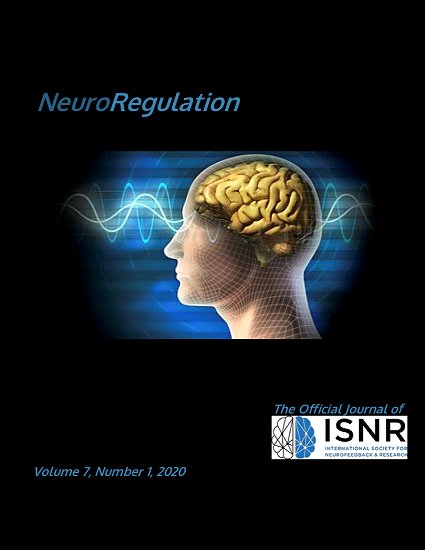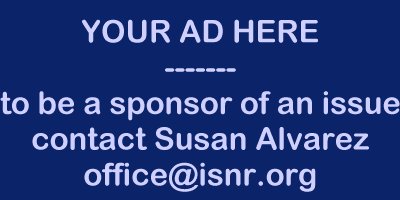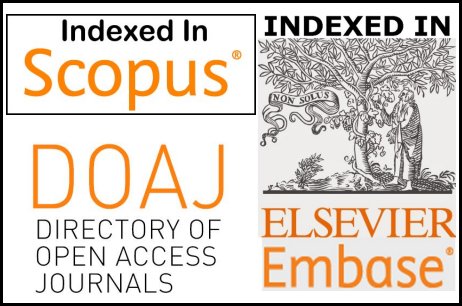Postsession Dreaming in Neurofeedback as an Indication of Nondeclarative Learning
DOI:
https://doi.org/10.15540/nr.7.1.2Keywords:
REM sleep, dreaming, neurofeedback training, nondeclarative learning, implicit learning, procedural learning and memoryAbstract
Clients may report increased dreaming following neurofeedback sessions. Increased dreaming may not be strictly a side effect of training but may rather be a result of the nondeclarative learning accomplished in training. Research has demonstrated the connection between dreaming and consolidation of memory in both animals and human subjects. Rapid eye movement (REM) deprivation studies have shown the importance of REM sleep to the retention of newly learned skills. Other studies have shown that learning may increase the proportion of REM sleep on subsequent nights. More specifically, REM dreaming may be related to the consolidation of procedural, nondeclarative memory, the type of learning that occurs also during neurofeedback training. When a client reports increased nocturnal dreaming following a neurofeedback session, this may serve as a valuable early indication that their brain is responding to this type of training.
References
Aserinsky, E., & Kleitman, N. (1953). Regularly occurring periods of eye motility, and concomitant phenomena, during sleep. Science, 118(3062), 273–274. https://doi.org/10.1126/science.118.3062.273
Ayala-Guerrero, F., Mexicano, G., & Ramos, J. I. (2003). Sleep characteristics in the turkey Meleagris gallopavo. Physiology & Behavior, 78(3), 435–440. https://doi.org/10.1016/S0031-9384(03)00032-5
Cavallero, C., Cicogna, P., Natale, V., Occhionero, M., & Zito, A. (1992). Slow wave sleep dreaming. Sleep, 15(6), 562–566. https://doi.org/10.1093/sleep/15.6.562
De Koninck, J., Lorrain, D., Christ, G., Proulx, G., & Coulombe, D. (1989). Intensive language learning and increases in rapid eye movement sleep: Evidence of performance factor. International Journal of Psychophysiology, 8(1), 43–47. https://doi.org/10.1016/0167-8760(89)90018-4
Dement, W. C. (1958). The occurrence of low voltage, fast, electroencephalogram patterns during behavioral sleep in the cat. Electroencephalography and Clinical Neurophysiology, 10(2), 291–296. https://doi.org/10.1016/0013-4694(58)90037-3
Dement, W. C., & Kleitman, N. (1957). Cyclic variations in EEG during sleep and their relation to eye movements, body motility, and dreaming. Electroencephalography and Clinical Neurophysiology, 9(4), 673–690. https://doi.org/10.1016/0013-4694(57)90088-3
Diekelmann, S., & Born, J. (2010). The memory function of sleep. Nature Reviews Neuroscience, 11(2), 114–126. https://doi.org/10.1038/nrn2762
Diekelmann, S., Wilhelm, I., & Born, J. (2009). The whats and whens of sleep-dependent memory consolidation. Sleep Medicine Reviews, 13(5), 309–321. https://doi.org/10.1016/j.smrv.2008.08.002
Ficca, G., & Salzarulo, P. (2004). What in sleep is for memory. Sleep Medicine, 5(3), 225–230. https://doi.org/10.1016/j.sleep.2004.01.018
Fishbein, W. (1971). Disruptive effects of rapid eye movement sleep deprivation on long-term memory. Physiology & Behavior, 6(4), 279–282. https://doi.org/10.1016/0031-9384(71)90155-7
Fishbein, W., Kastaniotis, C., & Chattman, D. (1974). Paradoxical sleep: Prolonged augmentation following learning. Brain Research, 79(1), 61–75. https://doi.org/10.1016/0006-8993(74)90566-6
Foulkes, W. D. (1962). Dream reports from different stages of sleep. The Journal of Abnormal and Social Psychology, 65(1), 14–25. https://doi.org/10.1037/h0040431
Gais, S., Plihal, W., Wagner, U., & Born, J. (2000). Early sleep triggers memory for early visual discrimination skills. Nature Neuroscience, 3(12), 1335–1339. https://doi.org/10.1038/81881
Giuditta, A. (2014). Sleep memory processing: The sequential hypothesis. Frontiers in Systems Neuroscience, 8, 219. https://doi.org/10.3389/fnsys.2014.00219
Groch, S., Wilhelm, I., Diekelmann, S., & Born, J. (2013). The role of REM sleep in the processing of emotional memories: Evidence from behavior and event-related potentials. Neurobiology of Learning and Memory, 99, 1–9. https://doi.org/10.1016/j.nlm.2012.10.006
Gruzelier, J. (2009). A theory of alpha/theta neurofeedback, creative performance enhancement, long distance functional connectivity and psychological integration. Cognitive Processing, 10(1), 101–109. https://doi.org/10.1007/s10339-008-0248-5
Hammond, D. C. (2011). What is neurofeedback: An update. Journal of Neurotherapy, 15(4), 305–336. https://doi.org/10.1080/10874208.2011.623090
Herlin, B., Leu‐Semenescu, S., Chaumereuil, C., & Arnulf, I. (2015). Evidence that non‐dreamers do dream: A REM sleep behaviour disorder model. Journal of Sleep Research, 24(6), 602–609. https://doi.org/10.1111/jsr.12323
Johnson, M. L. (2011). Relationship of alpha-theta amplitude crossover during neurofeedback to emergence of spontaneous imagery and biographical memory (Doctoral dissertation). University of North Texas, Denton, TX.
Karni, A., Tanne, D., Rubenstein, B. S., Askenasy, J. J., & Sagi, D. (1994). Dependence on REM sleep of overnight improvement of a perceptual skill. Science, 265(5172), 679–682. https://doi.org/10.1126/science.8036518
Larsen, S., & Verner, T. (2017). The transformational power of dreaming: Discovering the wishes of the soul. Rochester, VA: Inner Traditions Bear and Company.
Leong, S. L., Vanneste, S., Lim, J., Smith, M., Manning, P., & De Ridder, D. (2018a). A randomised, double-blind, placebo-controlled parallel trial of closed-loop infraslow brain training in food addiction. Scientific Reports, 8(1), 11659. https://doi.org/10.1038/s41598-018-30181-7
Leong, S. L., Vanneste, S., Lim, J., Smith, M., Manning, P., De Ridder, D., & Stoeckl-Drax, T. (2018b). Effects and side effects of infraslow network neurofeedback (ISF-NF): A randomised double blind placebo controlled trial. International Journal of Psychophysiology, 131(Suppl.), S151. https://doi.org/10.1016/j.ijpsycho.2018.07.402
Maquet, P., Laureys, S., Peigneux, P., Fuchs, S., Petiau, C., Phillips, C., … Cleeremans, A. (2000). Experience-dependent changes in cerebral activation during human REM sleep. Nature Neuroscience, 3(8), 831–836. https://doi.org/10.1038/77744
Marshall, L., & Born, J. (2007). The contribution of sleep to hippocampus-dependent memory consolidation. Trends in Cognitive Sciences, 11(10), 442–450. https://doi.org/10.1016/j.tics.2007.09.001
Mednick, S., Nakayama, K., & Stickgold, R. (2003). Sleep-dependent learning: A nap is as good as a night. Nature Neuroscience, 6(7), 697–698. https://doi.org/10.1038/nn1078
Nishida, M., Pearsall, J., Buckner, R. L., & Walker, M. P. (2009). REM sleep, prefrontal theta, and the consolidation of human emotional memory. Cerebral Cortex, 19(5), 1158–1166. https://doi.org/10.1093/cercor/bhn155
Pearlman, C. A. (1969). Effect of rapid eye movement (dreaming) sleep deprivation on retention of avoidance learning in rats. Report No. 563. U.S. Naval Submarine Medical Center.
Peever, J., & Fuller, P. M. (2016). The biology of REM sleep. Retrieved from https://www.ncbi.nlm.nih.gov/pmc/articles/PMC5846126/
Peigneux, P., Laureys, S., Delbeuck, X., & Maquet, P. (2001). Sleeping brain, learning brain. The role of sleep for memory systems. NeuroReport, 12(18), A111–A124. https://doi.org/10.1097/00001756-200112210-00001
Peigneux, P., Laureys, S., Fuchs, S., Destrebecqz, A., Collette, F., Delbeuck, X., … Maquet, P. (2003). Learned material content and acquisition level modulate cerebral reactivation during posttraining rapid-eye-movements sleep. NeuroImage, 20(1), 125–134. https://doi.org/10.1016/S1053-8119(03)00278-7
Plihal, W., & Born, J. (1997). Effects of early and late nocturnal sleep on declarative and procedural memory. Journal of Cognitive Neuroscience, 9(4), 534–547. https://doi.org/10.1162/jocn.1997.9.4.534
Poe, G. R., Walsh, C. M., & Bjorness, T. E. (2010). Cognitive neuroscience of sleep. Progress in Brain Research, 185, 1–19. https://doi.org/10.1016/B978-0-444-53702-7.00001-4
Rasch, B., & Born, J. (2013). About sleep’s role in memory. Physiological Reviews, 93(2), 681–766. https://doi.org/10.1152/physrev.00032.2012
Rasch, B., Pommer, J., Diekelmann, S., & Born, J. (2009). Pharmacological REM sleep suppression paradoxically improves rather than impairs skill memory. Nature Neuroscience, 12(4), 396–397. https://doi.org/10.1038/nn.2206
Ribeiro, S., & Nicolelis, M. A. L. (2004). Reverberation, storage, and postsynaptic propagation of memories during sleep. Learning & Memory, 11(6), 686–696. https://doi.org/10.1101/lm.75604
Siegel, J. M. (2001). The REM sleep-memory consolidation hypothesis. Science, 294(5544), 1058–1063. https://doi.org/10.1126/science.1063049
Smith, C. (1995). Sleep states and memory processes. Behavioural Brain Research, 69(1–2), 137–145. https://doi.org/10.1016/0166-4328(95)00024-N
Stoerig, P. (2007). Hunting the ghost: Toward a neuroscience of consciousness. In P. D. Zelazo, M. Moscovitch, & E. Thompson (Eds.), Cambridge handbook of consciousness (pp. 707–730). Cambridge, England: Cambridge University Press.
Takeuchi, T., Miyasita, A., Inugami, M., & Yamamoto, Y. (2001). Intrinsic dreams are not produced without REM sleep mechanisms: Evidence through elicitation of sleep onset REM periods. Journal of Sleep Research, 10(1), 43–52. https://doi.org/10.1046/j.1365-2869.2001.00237.x
Tucker, M. A., Hirota, Y., Wamsley, E. J., Lau, H., Chaklader, A., & Fishbein, W. (2006). A daytime nap containing solely non-REM sleep enhances declarative but not procedural memory. Neurobiology of Learning and Memory, 86(2), 241–247. https://doi.org/10.1016/j.nlm.2006.03.005
Walker, M. P., Brakefield, T., Morgan, A., Hobson, J. A., & Stickgold, R. (2002). Practice with sleep makes perfect: Sleep-dependent motor skill learning. Neuron, 35(1), 205–211. https://doi.org/10.1016/s0896-6273(02)00746-8
Wiesner, C. D., Pulst, J., Krause, F., Elsner, M., Baving, L., Pedersen, A., … Göder, R. (2015). The effect of selective REM-sleep deprivation on the consolidation and affective evaluation of emotional memories. Neurobiology of Learning and Memory, 122, 131–141. https://doi.org/10.1016/j.nlm.2015.02.008
Zhang, J., Zhu, Y., Zhan, G., Fenik, P., Panossian, L., Wang, M. M., … Veasey, S. (2014). Extended wakefulness: Compromised metabolics in and degeneration of locus ceruleus neurons. The Journal of Neuroscience, 34(12), 4418–4431. https://doi.org/10.1523/JNEUROSCI.5025-12.2014
Downloads
Published
Issue
Section
License
Authors who publish with this journal agree to the following terms:- Authors retain copyright and grant the journal right of first publication with the work simultaneously licensed under a Creative Commons Attribution License (CC-BY) that allows others to share the work with an acknowledgement of the work's authorship and initial publication in this journal.
- Authors are able to enter into separate, additional contractual arrangements for the non-exclusive distribution of the journal's published version of the work (e.g., post it to an institutional repository or publish it in a book), with an acknowledgement of its initial publication in this journal.
- Authors are permitted and encouraged to post their work online (e.g., in institutional repositories or on their website) prior to and during the submission process, as it can lead to productive exchanges, as well as earlier and greater citation of published work (See The Effect of Open Access).











